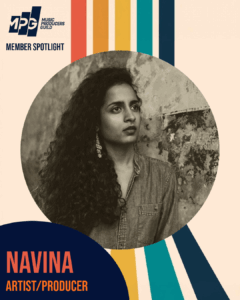 How would you define your main role on most of the projects you work on at the moment?
How would you define your main role on most of the projects you work on at the moment?
Aside from being the producer, I primarily function as the musician on the track, as I am a multi-instrumentalist and typically play all the instruments in my work.
Please tell us a bit about your musical background. How did you get started in the music industry? What was your pathway to your current role?
I trained classically in flute, had some training in piano, but actually began songwriting on the guitar. I produced my first piece of work in my late teens and, following its positive reception, decided to continue working as a producer.
What or who inspired you to follow this path?
I grew up in a musical family, where my parents encouraged and supported us to learn instruments and would often play strong singer-songwriter influences in the home. The way music connects with people universally, across all walks and seasons of life, inspired me from an early age.
With production, as a teenager I fell in love with how it breathes life into music as we consume it today. Songwriting is the life-giving process of creating music, but a song truly lives, breathes, and impacts listeners through the way it’s produced. Great music starts with great songs, but it only reaches others through great production. Having a hand in that as a producer is something that I’ve always found incredibly rewarding and exciting. Producers who have inspired me include Ryan Tedder, Rostam Batmanglij, Wayne Connolly, and Tim Johnston’s work with The Paper Kites.
Are there any highlights from your work that you are particularly proud of?
Funnily enough I think its working with emerging artists who are starting out yet strong songwriters which has been really rewarding. Having a hand in their early years, not just as a producer but also song development has let to do good coverage of their releases from the likes of BBC Introducing.
What’s one tip you can share with other MPG members that could help their workflow?
Prioritise organisation and structure in your workflow. Whether it’s live sessions or simply managing files and folders, having a clear structure for yourself and others—and being detail-oriented—creates a better environment for stress-free creativity. I’ve also found it really beneficial in the long term when I want to revisit or reuse elements from previous sessions or projects.
What’s one tip you would like an MPG member to share with you?
Are there any AI-related tools being used to support the workflow side of production—specifically the editing, or other manual processes—not the music creation itself? I’m curious about ways to streamline that part of the work.
Do you have any words of wisdom for people wanting to get into a similar music production role to yours?
If you’ve never produced before, I’d say: start with whatever you have, but pursue excellence at all times. Many people get caught up in having the “right” or most expensive gear, but often the best, most unique sounds come from the simplest, most unexpected sources.
I started producing in my bedroom on a shoestring budget as a teenager. Over time, I’ve built on that setup, but starting with a more stripped-back approach pushed me to be creative in sound-making—and I still use some of those techniques today. I say “pursue excellence” because small, low-quality elements can have ripple effects. Lots of little discrepancies can compromise the final result—attention to detail is key.
Read more MPG Full Member Spotlight interviews